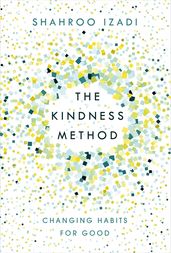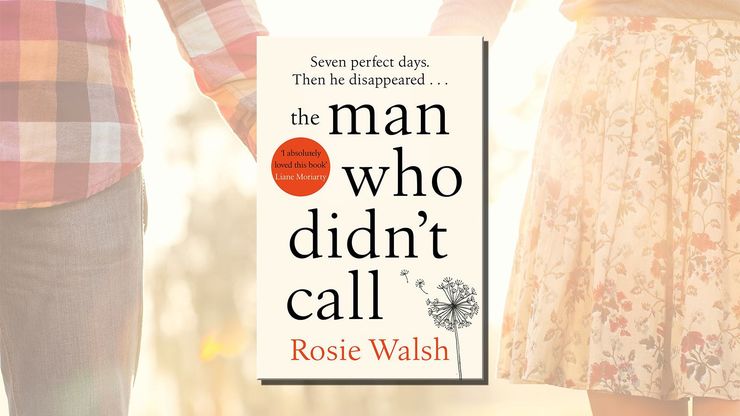How to deal with being ghosted
If you've been ghosted, you're not alone. In our era of modern dating, the tale of a series of butterfly-inducing dates followed by radio silence has become all too familiar. Cue a tailspin of anxiety, low self-esteem and a little voice asking 'but . . . why?' on loop. But how do you move on? Shahroo Izadi, Behavioural Change Specialist and author of The Kindness Method, tells us how to get over being ghosted.

Ghosting, or ending a relationship by cutting off all contact with no explanation, is, as anyone who has experienced it will attest, a particularly cruel way of letting someone know you're not interested. In Rosie Walsh's novel The Man Who Didn't Call, Sarah spends seven perfect days with Eddie and she's sure that she's found the man of her dreams – but then he disappears. Anyone who has waited for a phone call or message that never came will sympathise with Sarah, and while she eventually discovers the reason for his silence, in real life that's rarely the case. So how do you move on when you have no idea why things ended? And how do you keep your self-esteem intact? Here, Shahroo Izadi, Behavioural Change Specialist and author of The Kindness Method, explains how being kind to yourself can help you deal with negative feelings and move on when you've been ghosted.
When someone chooses to suddenly disappear from our lives, it can leave us with feelings of rejection, confusion and self-doubt. Not to mention anger and the desire to compulsively monitor social media in a search of answers. How ghosting affects each of us will, of course, depend on countless factors; the nature and duration of the relationship, how much the other person and the relationship meant to us, and how we are feeling about ourselves and our lives at the time, to name a few. For some, being ghosted can also reinforce existing feelings of low self-worth and negative core beliefs picked up from earlier life experiences.
Whatever the circumstances, there is sound advice out there on how we can try to make the experience easier to deal with. The good news is, you already know what it is.
We know what we'd say to a loved one if they were feeling confused and rejected as a result of someone else's behaviour towards them. It would probably be along the lines of “you didn't deserve to be treated like that”, “there's no point in trying to guess what's going on in someone else's head”, “it says more about them than you”, “focus on all the great relationships you do have” etc.
Despite possessing this wisdom and knowledge, often what we tell ourselves if we're in exactly the same position is far less understanding, compassionate or fair.
Being ghosted can provide an opportunity to tune-in to how you currently speak to yourself when you're feeling rejected or confused by other peoples' behaviour towards you in general. To notice whether you're generally giving yourself a much harder time than you'd give a friend and, if you discover that you are, to curiously and compassionately ask yourself why there should be any difference. Then, the next time you catch yourself being unfair or unkind in the way you speak to yourself internally, you can commit to adding a new statement, one that you know would make a loved one make peace with a difficult situation more quickly.
Our inner dialogue can also influence the way we choose to act towards ourselves. At times when our self-esteem has taken a knock and our thoughts are particularly self-limiting, it can be more difficult to feel worthy and capable of engaging in the exact self-care habits that could help us change our perspective on the situation and get through it more easily.
With this in mind, it can help to regularly reflect on the things that tend to be going on in our lives when we feel most confident and positive. Making a list of all the people, places and activities that tend to make us feel strong can serve as a go-to resource when we're feeling low. Plus the act of writing them out itself can be a mood-boosting exercise in gratitude and a much-needed reminder of those we do have in our lives. Make sure to include the behaviours and habits you tend to be engaging in towards yourself when you feel your best. Then, make a concerted effort to incorporate more of them into your daily life and ramp up the frequency at times when you could do with feeling more positive. For some people this will include things like exercise, drinking more water and having time away from their phones. For others, it will be more baths, nights out with old friends or much-needed lie-ins. Through the behaviours you engage in when you're hurt, demonstrate to yourself that you deserve to be taken care of and that there's so much you can do to take care of yourself when you need it the most.
Brutal as it can be, ghosting can perhaps at least serve as a general reminder that whilst we can't control how others treat us, we can choose how we behave towards ourselves in response to their behaviour. We can choose to treat ourselves with some of the respect, understanding and consideration that we may be craving from them.
The Man Who Didn't Call
by Rosie Walsh
Sarah and Eddie meet and spend seven perfect days together. Sarah has fallen head over heels in love and is certain he feels the same, but then he leaves on holiday, and she doesn’t hear from him again. Sarah’s friends tell her to move on, but she can’t. She’s sure there’s a reason for his silence – and maybe she’s right . . .
The Kindness Method

Behavioural Change Specialist Shahroo Izadi believes there��’s only one way to make lasting changes, and that’s to be kind to yourself. The Kindness Method was developed through a combination of professional training and personal experience and will leave you feeling empowered, positive and ready to make a change, whether it’s weight loss, cutting down on alcohol or improving your relationships.



